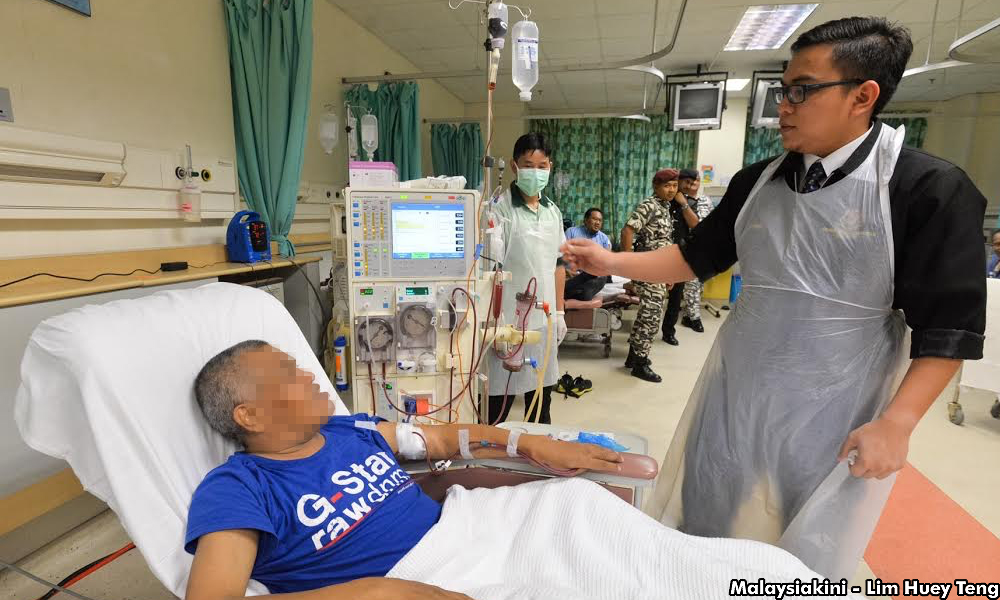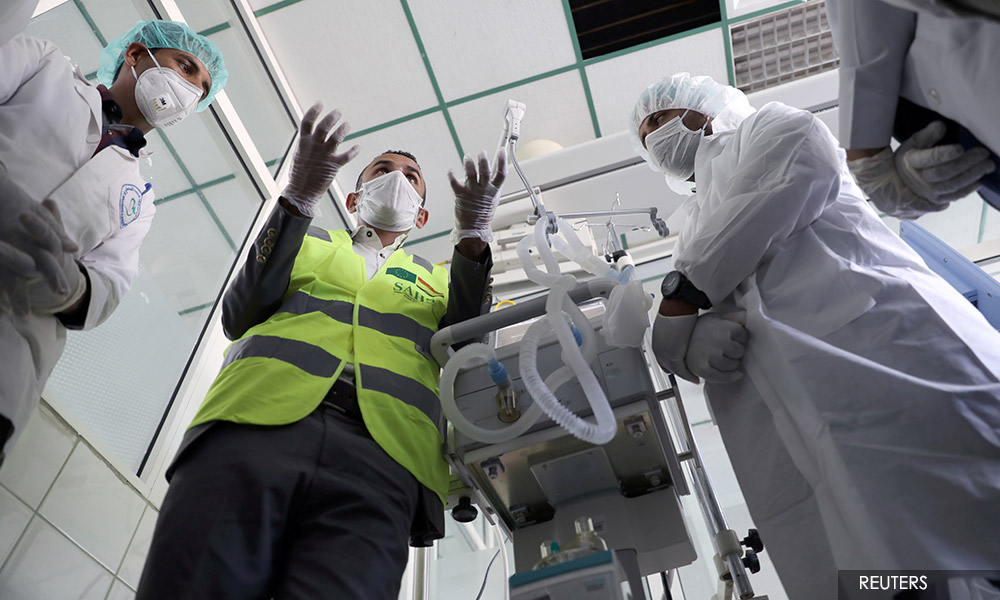The Hippocratic Oath, the Oath of a Muslim Physician and the Malaysian Medical Council’s Code of Professional Conduct are all instrumental in articulating the principles that continue to guide and inform the practice of medicine.
The oath is embedded in many legal statutes and may carry criminal or other liability beyond its symbolic or historic nature. At its core is the concept of primum non nocere (first, do no harm), drilled into our brains from the day we begin medical school and presumed to stay with us for the rest of our lives.
Many assume these oaths only deal with the doctor-patient relationship but the MMC Code of Professional Conduct states that “a practitioner must treat colleagues and staff with due respect and dignity at all times and avoid any act, verbal or physical, which may cause harm or injury, or which may be interpreted as harassment, including gender-related, aggressive pressuring or intimidating behaviour”.
If this has been drilled into our brains from day one as a medical student, then why do we still have these doctor-doctor relationship problems?
The issue dates back as far as the 18th century when medicine started off with the prevailing consensus that disease was nothing more than symptoms to be fixed by a paternalistic all-knowing doctor. Things have changed since then. The paternalism has given way to inclusiveness, with the patient at the centre of the decision-making process.
While this has improved the doctor-patient relationship, nevertheless, paternalism still remains a strong force within the doctor-doctor relationship, where the house officer is on the lowest rung in the hierarchy of superspecialists, specialists, registrars and medical officers.
This was the reality in 1980 when I was a house officer, and it is still there 42 years on. The instruction comes from above and the house officer carries it out without question. After all, it is about life and death, right?
Often it is a fine line that we tread between treatment and harm. House officers have to learn the hard way, which is deemed the only way. Many will attest to this being the most effective way to learn, and that those that fall by the wayside are simply not capable of facing the rigours in the years to come. Along the way, this paternalistic doctor-doctor relationship has been legitimised and there seems no other way at all.
Indeed, the present furore surrounding a house officer who committed suicide shows that nothing has changed at all. There are those who think that the house officers of today lack the strength and moral fibre of previous house officers who are now towering personalities in their subspecialities.

Many of them recall the horrendous hours they worked and the abuse they endured while being a house officer. They say that it made them better doctors. Why does working non-stop over 36 hours make you a better doctor later in life? Or does the abused now become the abuser?
I recall my own experience. I was a pregnant house officer and I have heard so many horror stories from current house officers who are denigrated simply because they are pregnant. It totally escapes my understanding of how something so normal and so physiological can be regarded as a hindrance by the very guardians of what is normal and physiological.
So how did I survive? Did I cry through every sleepless night? Did I dread my days in the orthopaedic wards? Not really; because my specialist, the late Professor Iqbal treated us with ultimate care and concern. He made his medical officers get me a chair to sit on during ward rounds. He asked me about my baby and along the way, I learned the basics of my craft. Ultimately though, I did not become an orthopaedic surgeon or anything clinical. That was a preference and a choice rather than because of threats or fears.
People can learn out of fear, and people can learn out of care... Why choose the former?
Emotional and psychological abuses
In trying to understand what really happened, and why so many house officers are facing emotional and psychological issues, I realise that this is nothing new. These problems have been there but never vocalised as strongly or as dramatically as in recent weeks.
It is interesting to note that every hospital in Malaysia has its own crisis centre for patients. We have hotlines for drug-addicted and suicidal patients; safe houses for the abused. But we have nothing for our own doctors who need help. We have nothing to support them with.
I see a tendency to either blame the house officers or to empathise with them by suggesting more favourable work conditions. The focus and the blame are always on the house officers, the most vulnerable within the hierarchy, the ones least able or willing to voice out their grievances for fear of repercussions. The fear is real, the backlash even more so.
Why are we so hard on those who want to become the carers of the sick? Why do we have such high standards? Perhaps it is because doctors live in a highly litigious age. They are acutely aware that when a patient comes to the hospital, the quality of care has to meet the standard of a competent medical professional.
The responsibility of making house officers reach that standard is something that weighs heavily on the minds of all specialists. How do they embed this professionalism within the psyche of the lowly house officer? Some do it with finesse, some do it with brute force.
Either way, the hard question remains. Is it wrong to have an angry outburst against some hapless house officer?
In the hospital setting, anger against a house officer can be motivated by a number of factors. A house officer is about to administer a potentially lethal dose of calcium with the power to stop the heart in mid-contraction. Do you get angry at him? Of course. A house officer carries out a spinal procedure that could potentially harm the patient. Do you get angry at her? Of course, you do.

In the operation theatre, the surgeon is tense, the anaesthetist is worried, the patient is unconscious and the blood pressure is dropping. The surgeon has to finish fast but the house officer who has one task and one task alone has failed to keep the abdominal retractor steady. He has been on his feet for more than 24 hours. The opening in the abdomen is no longer wide enough. Will the surgeon get angry at the house officer? Of course, she will. Will the anaesthetist shout in frustration because the operation is taking more time at the expense of the patient? Of course, he will.
Taken in the right context, this becomes a teaching moment which will never be forgotten by the house officer.
The house officer has to understand that when he finishes medical school, the training has not ended, it has only just begun. It is a case of life and death at its most intimate. Patients do not get sick only during office hours. They come at the most inconvenient of times, usually around five minutes before your shift ends. That’s how it is, and that’s what the house office expects.
Contrary to what people think, most of these young doctors are idealistic, eager learners who will stay at the hospital longer than expected because that is what they love doing. They can tolerate anger rather well and it may well be this anger from the specialist that saves you one night when you rush to the Emergency Department with chest pains and the young house officer correctly interprets your ECG instead of telling you it’s a bad case of gastritis.
When anger becomes abuse
At what point does anger become abuse? It is a fine line but there are key differences. The house officer and everyone else above her in the hierarchy, must realise that the anger may be harsh and the pain may be real, but whatever the reasoning however, anger should never show a pattern of cruelty.
Anger is never unjust, unfair or unkind. Anger never causes serious physical, psychological or emotional pain. Anger never humiliates anyone. Abuse can be all of the above. When the anger erodes self-esteem and self-worth, when the anger becomes manipulative and controlling, then it becomes abuse.

We learn many things in medical school and we learn many more as specialists in our own field of expertise. Doctors, more than anyone else, should know that the abused often become abusers themselves. Let’s break that chain. Let us learn to differentiate between anger and abuse, and practise compassion and empathy exactly like we said we would a long long time ago when we took the oath to become medical doctors in the service of humankind.
A doctor-doctor relationship is built on mutual respect and trust. The house officer is the most vulnerable in this relationship and needs to be nurtured. Yes, I was lucky enough to be trained under the late Professor Iqbal. It was tough, being pregnant and being a house officer at the same time. Sometimes, I wasn’t sure if it was day or night, but I learned about humility, compassion and empathy. The lessons were never forgotten and sustain me even today.
While the kind professor may no longer be around, I am sure he will be glad to know that because of him, I was never ever unleashed as an orthopaedic surgeon to an unsuspecting world. Thank you, Prof. - Mkini
DR ZALINA ISMAIL is a former professor in Neurophysiology at the School of Health Sciences, Universiti Sains Malaysia and fellow of the Foundation for Advancement of International Medical Education and Research (FAIMER)
The views expressed here are those of the author/contributor and do not necessarily represent the views of MMKtT.




No comments:
Post a Comment
Note: Only a member of this blog may post a comment.